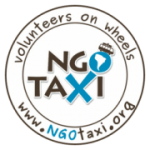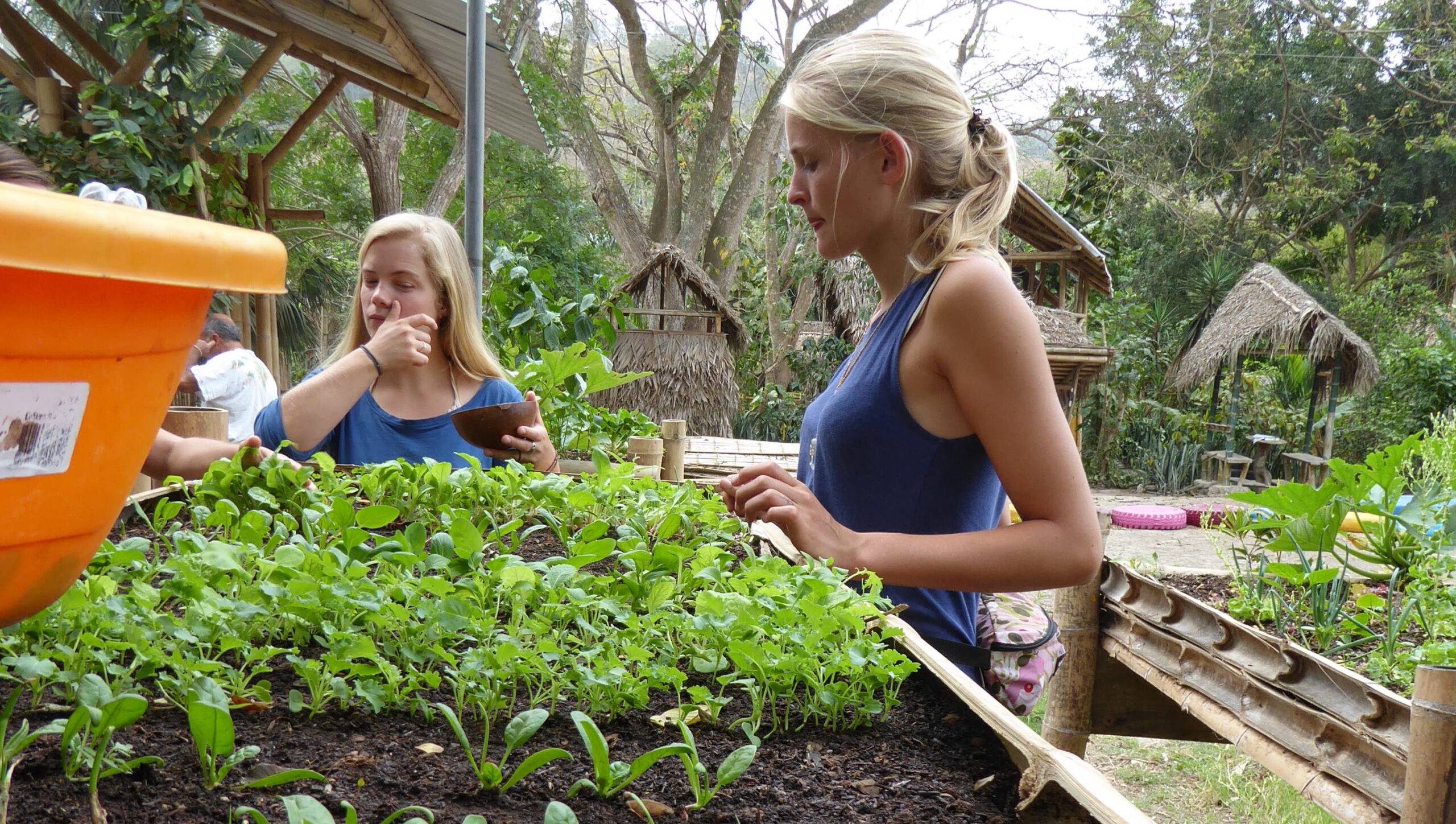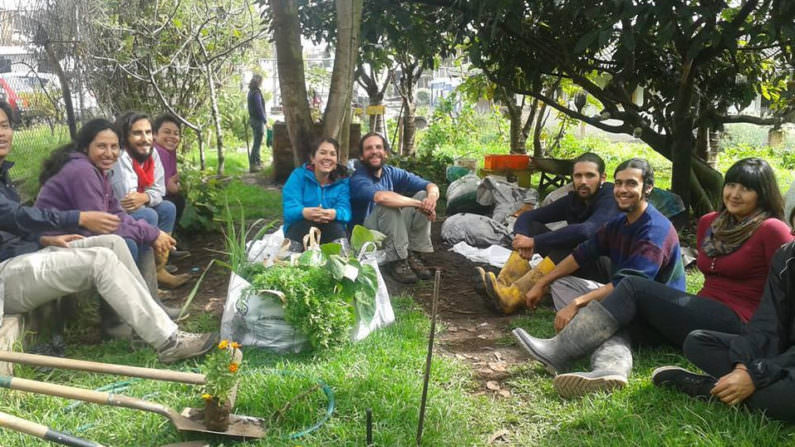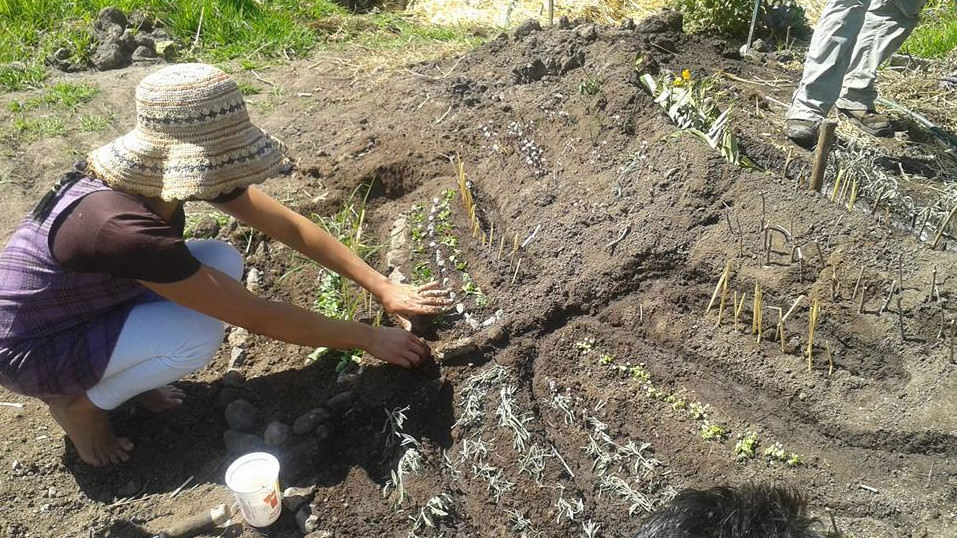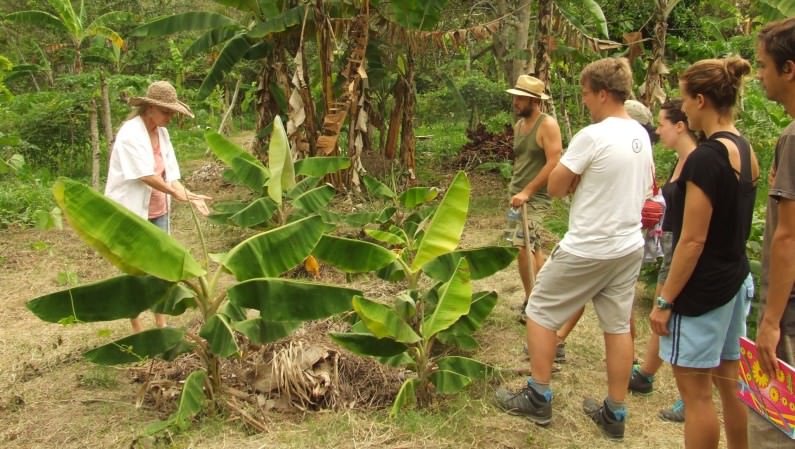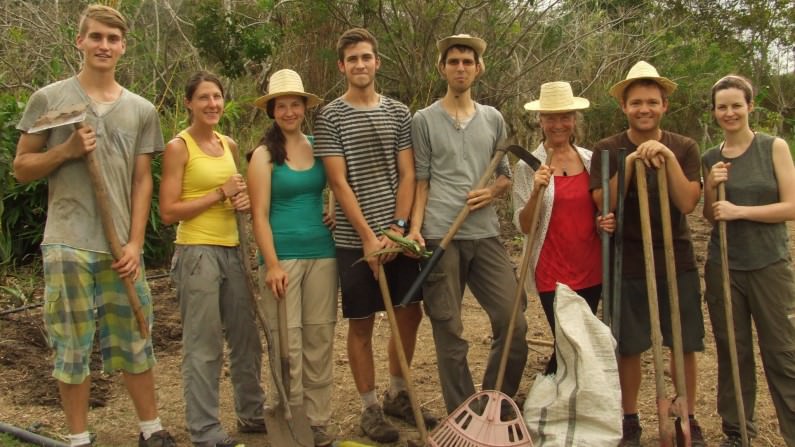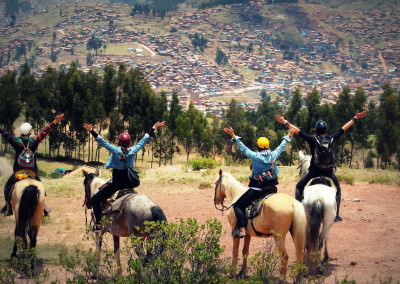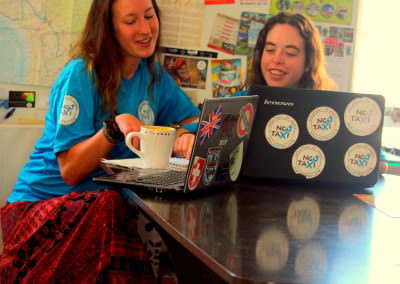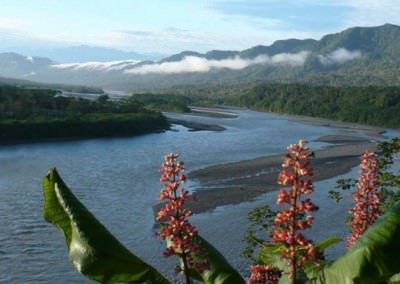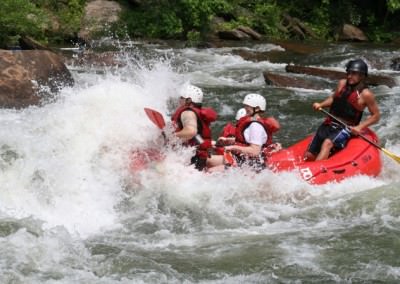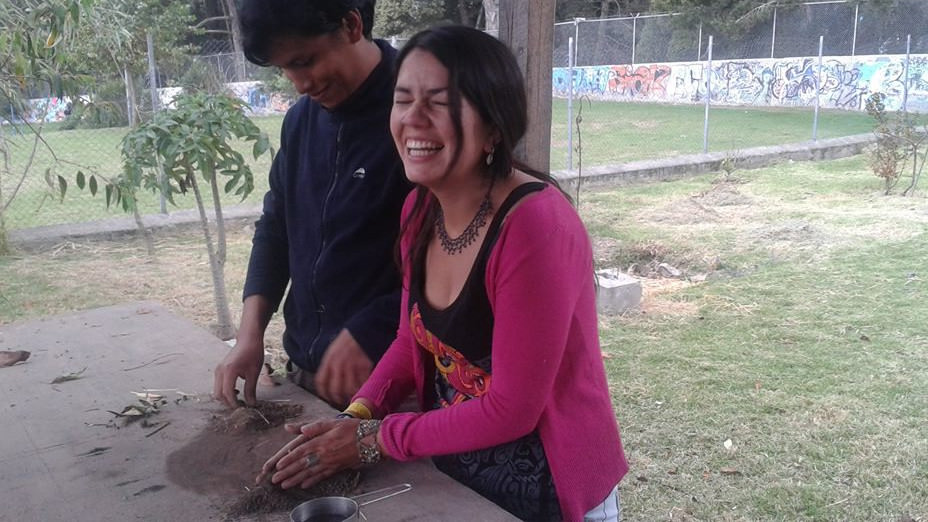
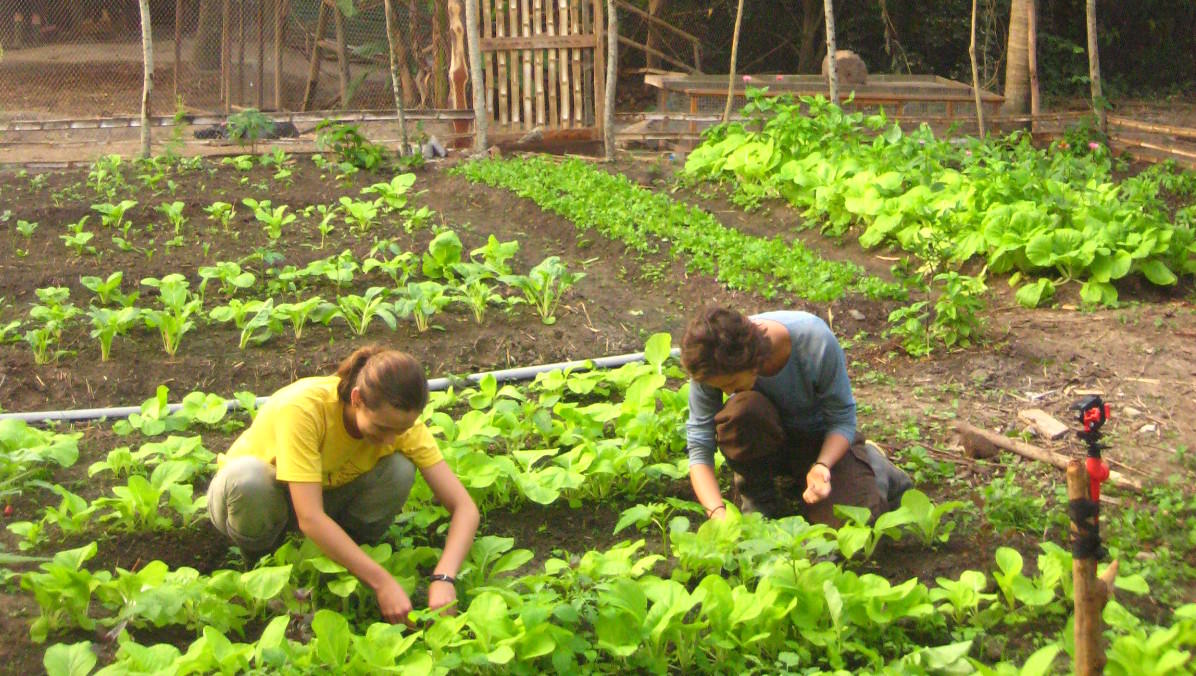
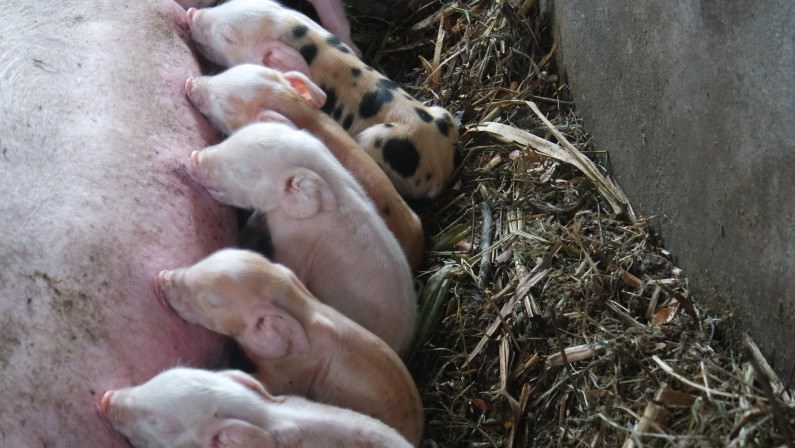
Sustainable Living Project (Pacific Coast Ecuador)
Project Description
Volunteer Tasks
Duties are split between the morning and afternoon.Typical morning projects focus on agriculture, sowing seeds, planting, weed and pest control, fertilizing, composting, caring for the animals, and recycling of organic and non-organic waste.
Typical afternoon projects focus on construction, administrative tasks, work within the local community. Duties include: carpentry or construction, mural painting, organization of information panels, maintenance of infrastructure, upkeep of paths and trails, production of foods such as marmalades, sauces and vinegars, communication and social networking (Depending on your skills and interests).
Working Hours
You will work from Monday to Friday between 8.30am-12pm and 1.30pm-4pm. Wednesday afternoons are “cultural Afternoons” where you are welcome to join a great selection of cultural activities including chocolate making, hikes, shrimp fishing, clay face mask making, crafts with palm seeds and gourds, or just rest in one of the many hammocks and read a book!
Self-sustainable Living: Chapters
Chapter One:
- The problems of conventional farming.
- The principles of organic farming.
- The value of organic material and what it does in the soil; how we can increment the OM levels.
- Theory and practice of composting: hot and cold composts, urban composting, trench composting, bokashi.
Chapter Two:
- Alternative kinds of fertilizers and liquid fertilizers.
- Compost tea and vinegars.
- Effective microorganisms.
- Worm farming.
- Moon influences.
Chapter Three:
- Permaculture design: zones; sectors; functional analysis; animals in permaculture; urban design; creative design; etc.
- Mulch gardening.
- Double dig gardening.
Chapter Four:
- Plant protection – pests and diseases (imbalances).
- Beneficial insects and how to attract them; methods of management.
- Biodynamic farming, cosmic influences and biodynamic preparations.
- Seed saving.
Location
The farm is located on the coast of Ecuador, the closest city is half an hour away. The farm itself boasts 9.5 hectares of land. This land is divided into 5 distinct areas: food forests, gardens and orchards, pastures, agroforests and renewable energy areas. More than 60 crops are rotated throughout the year, and the farm is home to a large number of animals of all shapes, sizes, and personalities including horses, cows, ducks, cats, dogs, pigs, and guinea pigs and even composting worms!
Transportation
Accommodation and Food
Things to Bring
- Towel
- Flashlight
- Reusable water bottle
- Long-sleeved tops and long trousers which you don’t mind getting dirty, preferably of cotton
- Lightweight rain jacket, just in case
- Swimsuit
- Sneakers or hiking boots
- Sandals or flip flops
- Weekend/evening clothes
- Padlock
- Biodegradable soap (i.e. glycerin soap)
- Biodegradable detergent (or you can pay a small fee to have your clothes washed for you)
- Other toiletries
- Sun hat
- Sun cream
- Insect repellent
- Bite relief cream
- Basic medical kit, along with any specific medicines you need
- Some good books
- A mosquito net, if you want
- Camera with zoom (if you want to catch some moments)
- Notebook and stationery (to take notes for the course)
- Spending money
Please note: the farm has an ongoing project with the local community. Any books that you would like to donate, fiction or nonfiction, English or Spanish, would be greatly appreciated. Second-hand computers that are still working and in good condition are also needed for giving classes.
Prerequisites
Additional Information and Specials
Minimum Age
18 years
Start Dates
Sundays (Individual arrival dates possible, surplus applies).
Length of Stay
The camps typically last 4 weeks minimum, although you are welcome to stay for additional months/weeks.
Included Services
- Accommodation and bedding.
- Three meals a day, seven days a week (not on days when you are not on the farm).
- Pick up from the nearest town.
- Pre-arrival information pack.
- Welcome dinner.
- Free T-Shirt.
- Rubber boots and protective gloves.
- 24-hour support.
Excluded Services
- Local transport when on the farm.
- Weekend activities and food/drinks when off the farm.
- International flights.
- Spanish lessons.
Language Requirements
Employees at the farm are Ecuadorian and are able to converse at least a little with the local populace always enriches your experience; therefore, conversational Spanish would be a useful skill to have. Never fear though – NGO Taxi can arrange a variety of Spanish courses for all participants which can be undertaken either in their home countries (through Skype and online learning), or once in South America and before the project start. If you choose to study with us in Ecuador you can do this before your project in either one of the main cities of Ecuador or in a city on the coast close to your project site (please note that the options are subject to different prices). Do not hesitate to contact us for more information!
Immunizations and Health Advice
Since you’ll be living in a coastal forest of a developing country and coming into contact with both domestic and exotic animals, it’s essential that you have all the current immunizations. This includes yellow fever (certified), tetanus, typhoid, diphtheria, hepatitis A & B, and rabies. You’ll receive exact information on the required immunizations, as well as your personal preliminary documentation following your successful application with us.You can inquire in advance concerning immunization requirements by consulting medical authorities in your country of origin, e.g. in the US, check with the Centers for Disease Control and Protection http://wwwnc.cdc.gov/travel/destinations/traveler/none/ecuador.Please make sure that you have up-to-date vaccinations against all listed diseases. NGO Taxi cannot be held responsible for the provision of vaccinations for their volunteers. It is the responsibility of the volunteer to ensure that they have followed up-to-date medical advice. The farm is almost mosquito free; however, a greater number of mosquitoes can be found in coastal areas. However. There have been some cases of both dengue and malaria in the wet season (although the risk is very low), so if you plan to stay longer or travel around the coast be sure to take precautions such as long clothing, insect repellent, and antimalarials if advised by your doctor. At some times of the year ticks can be found – although these are a nuisance rather than a health risk.
ADDITIONAL OPPORTUNITY NOW AVAILABLE
The farm is looking for a long-term Bilingual Volunteer to assist a single Teacher of 35 in a local school. Please contact us if you are interested.
Free Time Activities
At the farm itself you are welcome to relax on the grounds, bird watch, hike around the valley, or hike the ‘Lookout Trail’. However, many people choose to venture to the seaside where you can soak up the rays, enjoy the surf, sip cocktails from a hammock, go horse riding along the sands, enjoy a little bit of town life, or visit nearby islands. As Ecuador is a fairly small country, head along the coast to Puerto Lopez and Isla de la Plata (June- September is whale watching season). Quito, the Cotopaxi volcano, and the Quilotoa loop are all further afield but still reachable.
Manta, Ecuador
Included Services
- Accommodation and food.
- Pickup from the nearest town.
- Rubber boots and protective gloves.
- Pre-arrival welcome pack.
- Welcome dinner.
- Complimentary t-shirt.
- All course materials and activities.
- 24 hour support.
Pricing
Official Camp dates:
Start dates every 1st/3rd Sunday of the month
€ 1099,00 – 1st month
€ 1049,00 – 2nd month
€ 999,00 – 3rd month, and after
Individual camp dates:
+ € 150,00 – Start your placement any Sunday of the month
+ € 250,00 – Chose your own start dates and change them up to 3 times before your trip.*
*Last date change up to 3 weeks before your departure.
